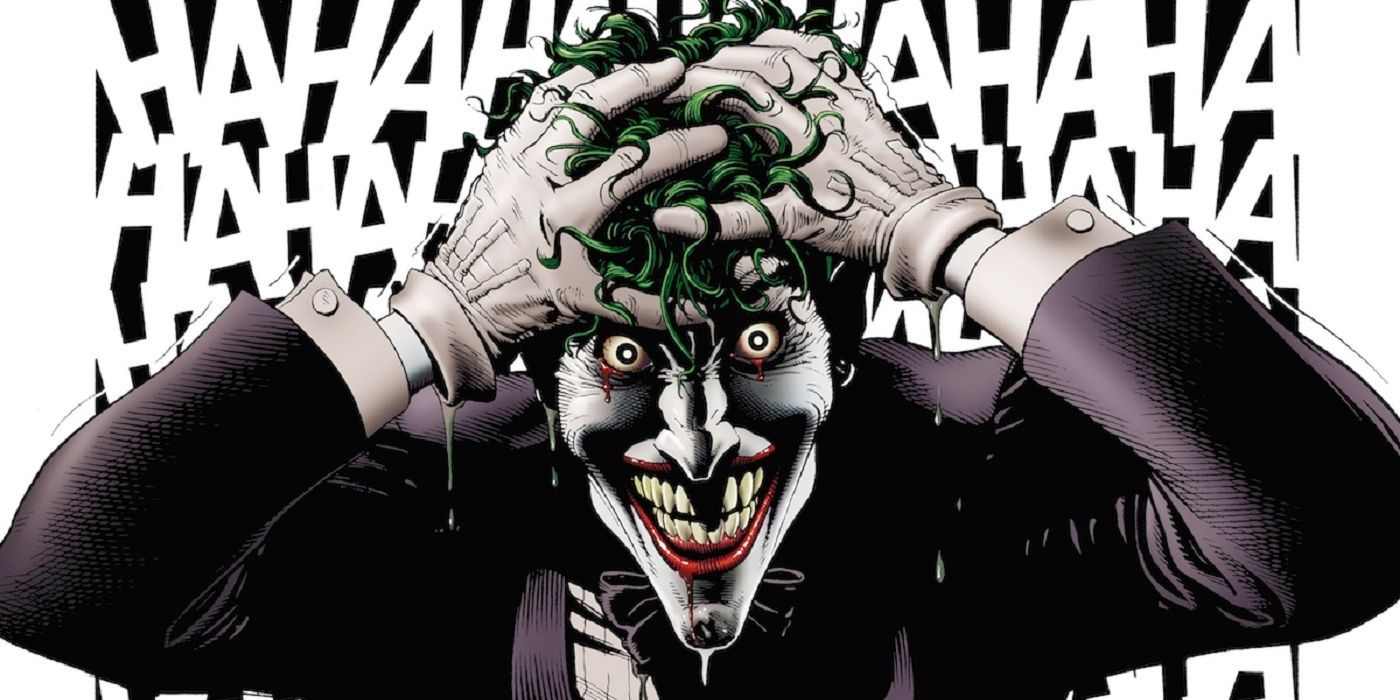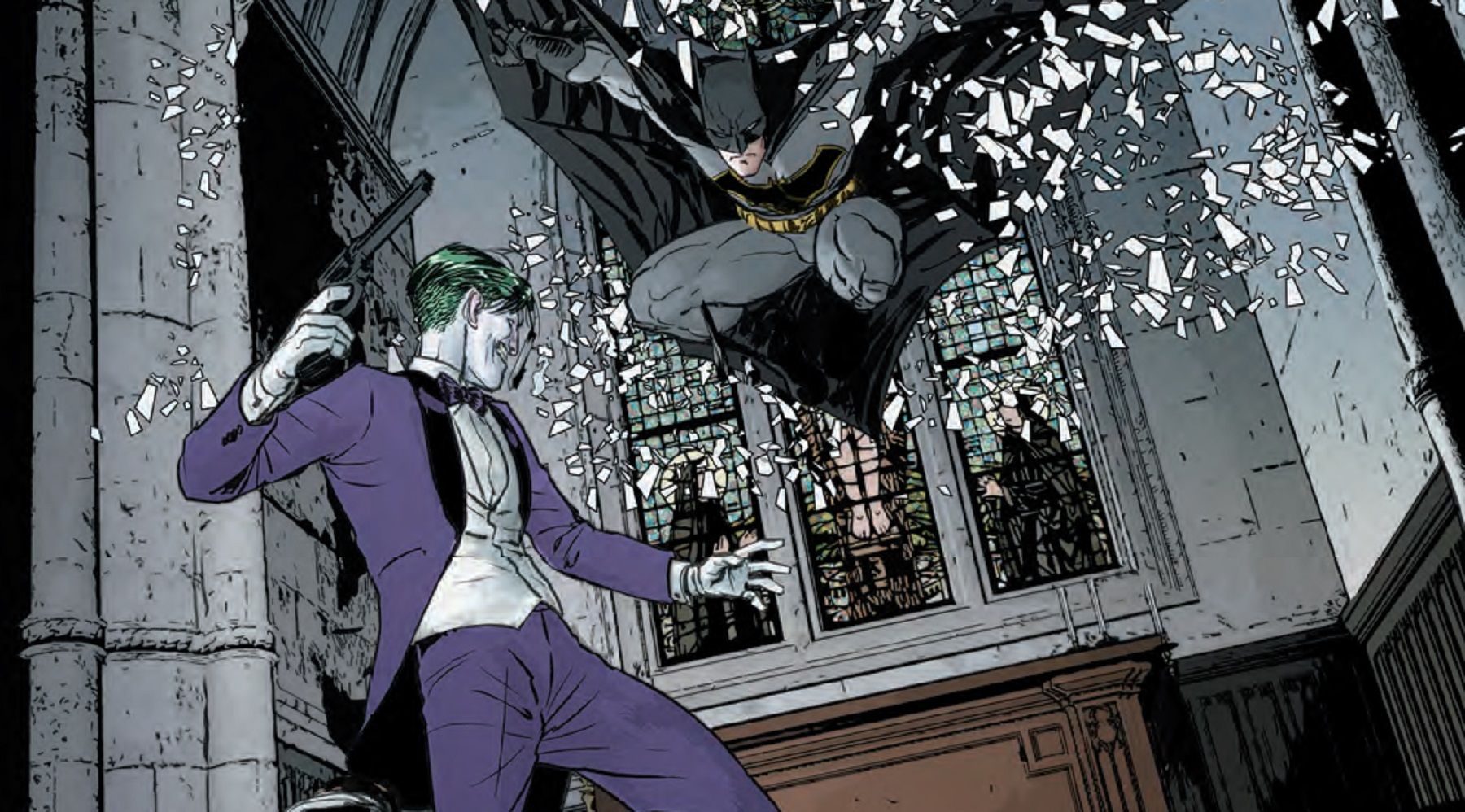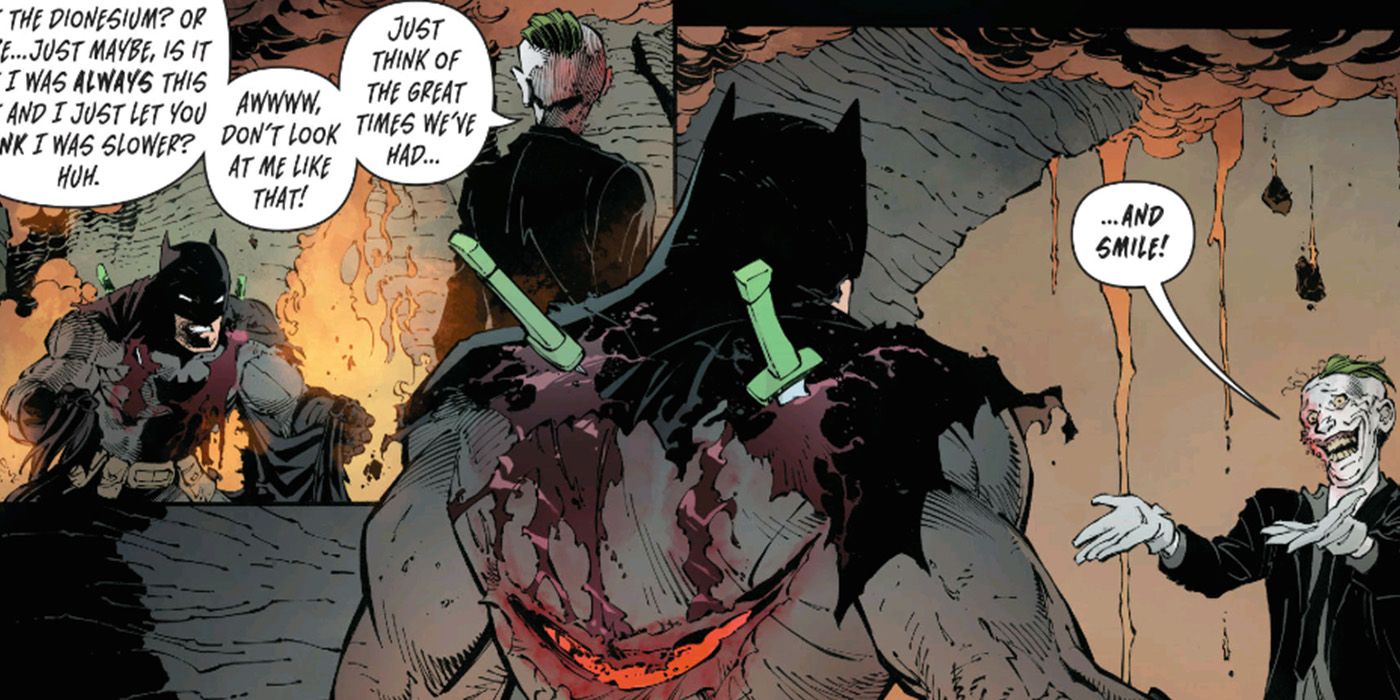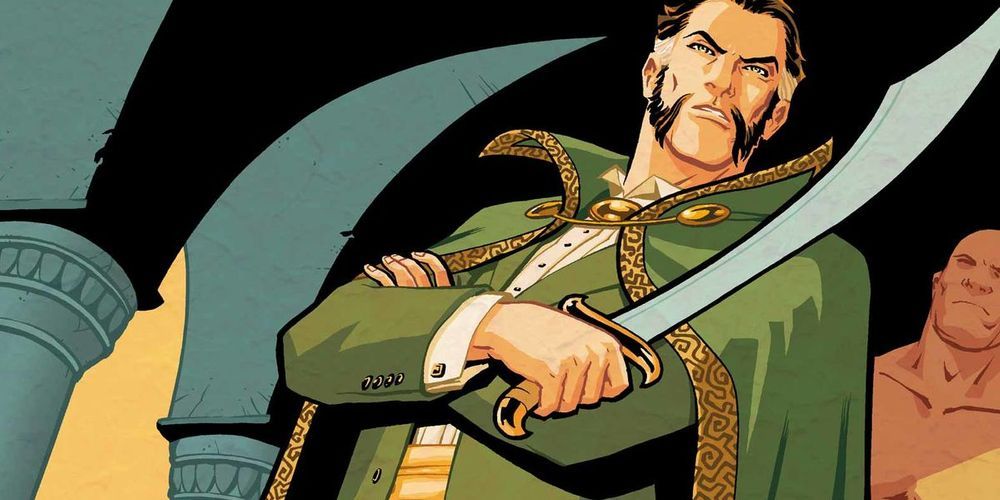The Joker's status as a villain elevates him to almost being synonymous with the term "arch-nemesis." The two are classic polar opposites, and the question of who Batman's greatest villain is almost doesn't seem like a question at all. But with a review of what it means to be an arch-nemesis, as well as the characters' histories, and their relationship with each other we have to wonder: Does Joker truly deserve the title of Batman's greatest villain?
What truly makes a great arch-nemesis should first and foremost be their ability to make for great conflict. The driving force of any plot is the conflict at its hand, and the antagonist's role is to provide the conflict which the hero sets themselves against. A broad look at Joker seems to indicate that he's wonderful for creating conflict, especially given that he is at the center of many of Batman's most conflicted moments.
Jason Todd's death in A Death in the Family and Barbara Gordon's paralysis in Killing Joke were both acts perpetrated by Joker, and both stuck with Batman as defining moments in his history. But while they're memorable, they pigeonhole the Joker into being an antagonist worthy of a big event with massive consequences. As it stands, comic books are released on a monthly basis, and Batman is admittedly one of DC's most popular characters, appearing in multiple monthly titles. If the Joker were to kill someone new with every appearance there wouldn't be a Bat-Family left to mourn.
Even the issue-by-issue conflicts for the Joker are minimal, as he poses very little physical threat to Batman. Without any of Batman's training or gadgets, and with the Dark Knight well familiar with the few tricks the Clown Prince of Crime does offer, the Joker just isn't a formidable physical threat. All of their conflicts involve the Joker's overarching schemes, but the climax of Batman unraveling these schemes is often underwhelming.
The villain's opposition to Batman ideologically is perhaps the biggest point in his favor in making the Joker Batman's greatest villain, but what really is the conflict ideologically? Christopher Nolan's 2008 film The Dark Knight popularized the notion that the Joker and Batman are fundamentally a struggle of Order vs. Chaos, but Batman doesn't truly embody the idea of "order" like other superheroes.
Batman works outside the law. He tends to use fear and superstition to his advantage and frequently deals in morally-grey areas that do not stand in stark contrast to the Joker's purposeless anarchy. When looking at the forest it may seem like Joker is the best arch-nemesis for Batman, but the trees tell a different story. The threat he offers isn't sustainable enough, he creates no physical match for Batman that makes for a truly exciting climax, and even symbolically he isn't the polar opposite he's often treated as.
The Batman villain who truly ticks all those boxes is one too often ignored: Ra's Al Ghul. The immortal head of the League of Assassins fills all of the criteria for being Batman's true arch-villain perfectly, but despite his use in Nolan's first film, Batman Begins, popular audiences still do not give The Demon's Head the credit he deserves.
As both the overseer of a vast criminal organization and an ageless warrior with centuries of fighting experience at his disposal, the conflict that Ra's creates for Caped Crusader is exemplary from start to finish. He often refers to Bruce Wayne as "Detective" in recognition of the hero's genius, and it is genius Ra's matches with actual cunning and preparation.
Ideologically, the parallel between Ra's and Batman is far more satisfying than the one between Batman and Joker. Rather than representing just a vague spirit of chaos, Ra's creates a direct foil for Bruce Wayne by embodying many similar characteristics he harnesses toward different endeavors. He is a man with seemingly unending resources utterly dedicating his mind and body toward his cause. The main difference between him and Batman is the cause itself.
The comparison isn't as simple as selfishness vs. selflessness, either. Ra's has been an active political force since at least the 1600s, and his desire to shape the world in his image has forced him into a role as a global terrorist that echoes Batman's own willingness to break the law to preserve the law. Stories like Birth of the Demon and Son of the Demon reveal Ra's concern for his legacy beyond himself eerily similar to Batman's collection of Robins and super teams.
The comparisons between the two characters are like a kaleidoscope offering an array of interesting parallels based on the perspective one takes. Much like the immortality the Lazarus Pits bestow on Ra's himself, the relationship between he and Batman is unending and ever-evolving. If you're looking for the Greatest Villain for the World's Greatest Detective you should dig deeper than what the movies would lead you to believe. And if you dig deep enough, you'll find Ra's Al Ghul at the bottom of a pit refusing to die.




